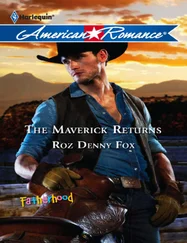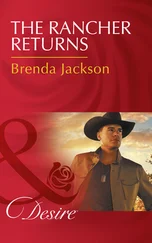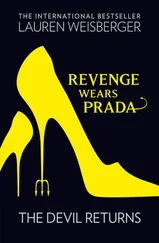“So sabotage?”
“I don’t know. I agree, Don Forlenza wouldn’t kill his own godson, even if he had a reason to. As far as we know, he didn’t have a reason. But I’m not so sure it’s impossible to sneak onto that island somehow.”
“If not Forlenza-”
Michael shrugged and arched an eyebrow and kept his eyes fixed on Pete’s.
“La testa di cazzo.” Clemenza pulled out the elevator’s emergency stop knob with one hand, pounding the wall with the other. “Russo.”
Michael nodded, as if in thought. “One airplane,” he said, “and who gets hurt? They hit us, they hit Molinari, they hit their own guy Falcone, a reckless man who maybe they thought had stepped too far out on his own, and it all looks like Forlenza ordered it. Their four biggest competitors not just here, in Las Vegas, but in the western half of the country.”
“ ‘Everything west of Chicago is Chicago,’ ” Clemenza said, mocking. “Quello stronzo.”
“If you’re right,” Michael said, “ turd only scratches the surface of what that guy is.” He shook his head in a way he was sure looked sincerely rueful.
Clemenza filled his fat cheeks with air, exhaled slowly, then pushed the button in. When the elevator doors opened, a few dozen people were already there, scattered throughout the ballroom. Clemenza patted Michael on the back. “Don’t let that shit ruin this thing here,” he whispered. “Enjoy it, okay? You went to all that trouble to have your face fixed where that cop fucked it up. Show it off a little. Smile.”
Michael had lied.
Not lied exactly. More like: he’d led a horse to water, and Pete Clemenza had bent over and drunk. If Pete blamed Russo that fast, he wouldn’t be alone.
The truth was that Michael Corleone had sought to hurt all four of his biggest rivals in the West. That was the easy part. The hard part had been to do it without taking the blame. By orchestrating the incident so that not another living soul knew all of what he’d done (not Hagen, not Pete, nobody), he might have done that, too.
Frank Falcone was a menace. Ever since Michael had had Moe Greene killed, Falcone had been the biggest roadblock to the Corleones’ expansion into Las Vegas. Pignatelli would be more obedient to Chicago than Falcone was, yet because of his business relationship with the Corleones-both his involvement in the Castle in the Clouds and the satchel of cash he’d had Johnny Fontane deliver as a tribute for killing Falcone-he posed no threat.
Tony Molinari was a longtime ally, true, but his increasing wariness about Michael’s setting up a base of operations in Lake Tahoe, a couple hundred miles from San Francisco, was a problem destined to escalate. Unfortunately, he’d become a cancer best removed now.
Forlenza was an old man. Disgracing him while he was still alive was better than killing him. He’d been bragging to the other Dons for years about his little island fortress. He’d get all or part of the blame for the crash. Even if no one came after him for revenge, there would be pressure from his own men for him to step down. Sal Narducci-who’d struck a deal with Michael Corleone and overseen the sabotage of the plane-would become Don. After waiting for the job for twenty years, he was a good bet to keep his mouth shut about how he finally got it. Installing Narducci as Don would also sever Cleveland ’s ties to the Barzinis.
The best part of the plan was what it would do to Chicago. It would be impossible to prove that Russo had been behind it and equally impossible to disprove it. But once Michael let the members of the Commission know that the dead pilot O’Malley had really been his new capo, all the right people would consider who’d had the most to gain.
Would Forlenza kill his own godson? No.
Would Michael Corleone kill his new hotshot capo ? Who could imagine?
That left Chicago.
Michael had managed to hit Chicago without killing a single one of Russo’s men. Michael would thus not have to worry about Russo seeking revenge. The only tangible loss Russo would suffer was that now he’d come to the peace table dealing from a position of weakness. But that was all Michael needed.
The most difficult decision Michael had made was to kill Geraci.
Without question, Geraci had done a brilliant job with the drug business, but his aggressiveness was an issue. His ambition was boundless, larger than even he himself understood. Though he’d been unswervingly loyal, his connection to Forlenza would always be a concern. He’d always be sore about Tessio. And when Michael had made Fredo sotto capo, Geraci had asked him, in public, if he’d lost his mind. They’d been at dinner at Patsy’s. No one else had been at the table. No one else had heard. Geraci had apologized. But few Dons would tolerate such disrespect. It might have seemed petty, but it convinced Michael Corleone that all the smaller concerns about him were well founded and destined to grow more severe.
Still, only the last justified having Geraci killed. Even that might have been forgiven. There had been no betrayal. Geraci’s assets easily outweighed his liabilities. Michael liked him.
Sacrificing Fausto Geraci, Jr., was not what Vito Corleone would have done.
It was, rather, the act of a marine who’d seen at least a thousand good men die, seemingly at random: a necessary evil swapped for the chance to achieve a greater good.
It was a perfect plan, unless it was true that one of the men had survived.
Clemenza had lied, too.
Michael’s initiation was not the only time he’d seen the Don like that. Still frail from his own gunshot wounds, Vito had returned home from burying Santino so wracked with grief it haunted everyone who’d seen it. Michael hadn’t seen it. The people who had-Michael’s mother, his sister and her husband, his brothers, Tom and Fredo, and Pete Clemenza, who, soon after the sobbing started, embraced his friend and went home, leaving the family to themselves-carried with them the image of that broken man and the sounds of his horrible wails. They had never spoken of it, not to one another and certainly not to anyone who hadn’t been there, not even Michael.
Several people who’d been at the Fontane show made an appearance in the rotating ballroom. A reception, that’s all it seemed to be. There was no discernible mass exodus of the union officials, orchestra members, or women. As far as any of the thirteen new men might have been able to tell, one moment those other people were there. The next, made members of the Corleone Family were carrying two long tables, already covered with white linen tablecloths, to the center of the parquet dance floor, and every single one of the outsiders was gone.
Someone hit the lights.
Throughout the room, men put hands on the shoulders of the inductees and in hoarse whispers congratulated them (there would have been fourteen if Fredo hadn’t made Figaro miss his plane). These were men the new guys had looked up to for years-running their neighborhoods, dressed in tailored suits and holding forth in barbershops and at lunch counters and on empty peach crates in front of certain garages, driv-ing fancy cars and fucking fancier women, dispensing favors and looking out for their own, running a court of last resort for a maligned people who needed one, operating in a world that, back then, had seemed mysterious, powerful, and unattainable. Outside the dark ballroom, oblivious tourists swam in the rooftop pool.
When the ballroom lights came back up, the table was set: thirteen place settings, each with a votive candle, a holy card, a dagger, and-in a gesture meant to denote the Family’s expansion into the Wild West (Fredo’s idea, in other words)-a gleaming, unloaded Colt.45.
Читать дальше











